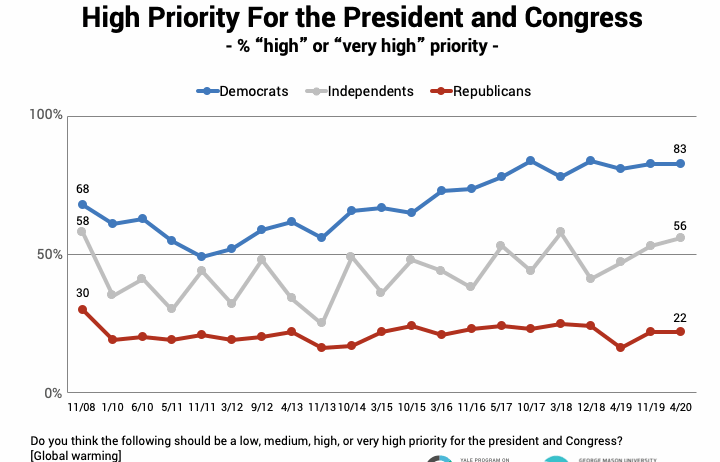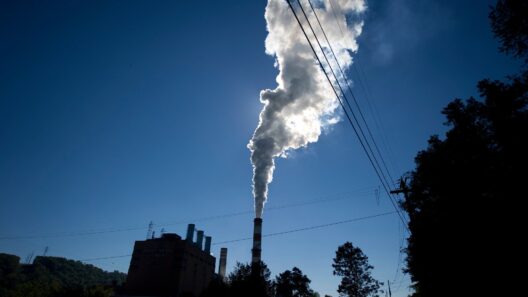The escalating discourse surrounding global warming has birthed a paradigm shift in the political landscape, characterized predominantly by a burgeoning interest in renewable energy. It is a captivating interplay of environmental necessity and political expediency that compels countries, corporations, and citizens alike to pivot towards more sustainable practices. The fascination with renewable energy—solar, wind, hydroelectric, and geothermal—goes beyond mere resource allocation; it encapsulates a holistic response to an existential crisis. This renewed vigor against climate change is reshaping not only energy policies but also the geopolitical arena.
One of the more conspicuous observations is the increasing intertwining of climate change activism with political agendas. Globally, governments are investing in renewable energy initiatives to fulfill both environmental commitments and to cater to their electorates’ desires for clean, sustainable energy sources. The frequency and intensity of climate-related events—a harbinger of warning—have rendered the climate crisis not just an environmental issue but a salient political one. No longer can policymakers afford to ignore the palpable shifts in public sentiment demanding action against climate degradation.
Behind this newfound urgency lies a confluence of factors that merit further examination. The economic incentives associated with renewable energy are promising. Innovations in technology have driven down the costs of solar panels and wind turbines, making them more accessible and economically viable. Consequently, a diverse array of stakeholders, from small businesses to large corporations, is transitioning away from fossil fuels. The acknowledgment that renewable energy can simultaneously curb greenhouse gas emissions and foster economic growth provides a compelling argument in political discourse.
Moreover, the psychological aspect associated with renewable energy plays a pivotal role. The symbolism of solar panels sprouting on rooftops or wind turbines gracefully turning on hillsides encapsulates hope. This is a tangible manifestation of societal aspiration towards a cleaner, more sustainable future. It resonates with a generational shift where younger voters consider climate change a paramount issue, prompting politicians to respond with inclusive policies favoring renewable energy development.
According to recent surveys, a significant majority of voters across various demographics indicate robust support for solar and wind energy advancements. This is indicative of a broader acknowledgment of the climate crisis and a desire to be part of the solution. As public spheres actively engage in discussions about renewable energy, the conversation is no longer limited to scientists and environmentalists; it has permeated the everyday lexicon of politics, prompting legislative agendas that address climate change head-on.
If we delve deeper into the political ramifications, one must consider the impact of international agreements such as the Paris Agreement. Countries are increasingly compelled to align their energy strategies with the global commitment to limit global warming to below 2 degrees Celsius. The geopolitical dimensions of climate policy cannot be understated; nations are finding themselves in competitions and collaborations over renewable technologies, rare resources, and manufacturing capabilities. The race for technological supremacy in renewables is reshaping foreign relations while simultaneously emphasizing the necessity for a transnational approach to climate change.
Nevertheless, the transition to renewable energy is not devoid of challenges. The pushback from fossil fuel industries has been profound. These entrenched entities often wield significant power, lobbying against climate-friendly legislation, perpetuating skepticism about renewable energy, and attempting to influence public opinion through misinformation campaigns. This presents a dichotomy where the urgency to adopt renewable energy clashes with the status quo, creating a complex battleground for policy-makers.
Additionally, infrastructure presents another significant hurdle to the renewable energy boom. The existing energy grid, predominantly designed with fossil fuel generation in mind, requires substantial upgrades to accommodate diverse renewable sources. This necessitates significant investment, cooperative legislation, and public support, which poses a unique challenge as politicians negotiate the demands of competing interest groups. The pathway to a sustainable energy future must thus encapsulate not just the desire for change but the pragmatism needed to enable it.
In juxtaposition to these challenges are the growing grassroots movements advocating for climate justice. These movements underscore the intersectionality of climate change with social equity and advocate for systematic changes that consider the marginalized populations most affected by environmental policies. The United Nations and various NGOs have also stepped into the fray, amplifying calls for action. The convergence of social justice and environmentalism is reshaping how policies are drafted, pushing for inclusive frameworks that do not leave vulnerable communities behind.
While the renewable energy boom symbolically marks a decisive shift in global warming politics, it is also indicative of the complexities that come with transformation. The excitement surrounding renewable technologies serves as both a beacon of hope and a reflection of the profound urgency with which we must approach global warming. It stands at the intersection of ethics and pragmatism, uniting various stakeholders in the common goal of a sustainable future.
In summation, the new face of global warming politics is irrevocably linked to the ascent of renewable energy as a powerful tool for change. It calls for a collective rethinking not only of energy policy but also of socioeconomic structures that govern resource allocation and environmental stewardship. The journey towards a sustainable future will be fraught with challenges, yet the prevailing sentiment emphasizes resilience, innovation, and a relentless pursuit of climate justice. As this narrative unfolds, stakeholders at every level must remain vigilant, agile, and committed to bending the arc of history towards a restorative, sustainable future for all.








